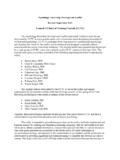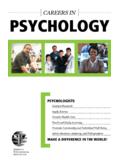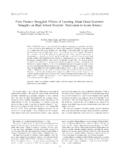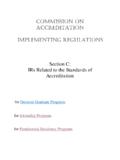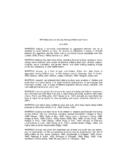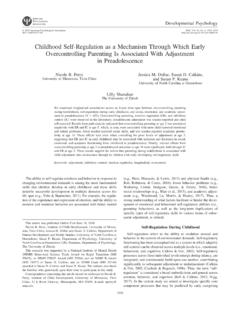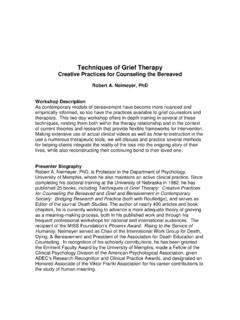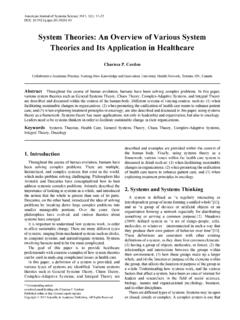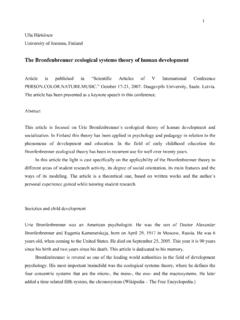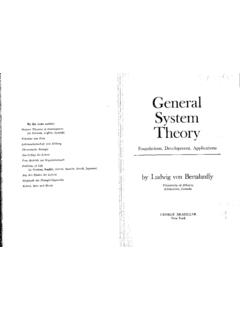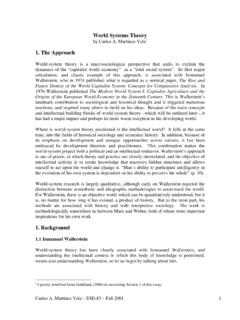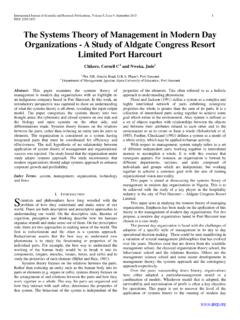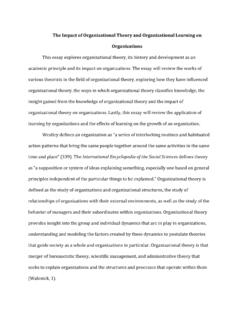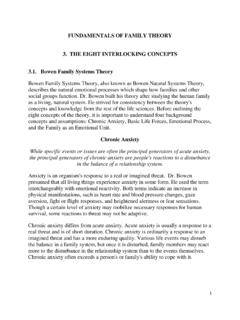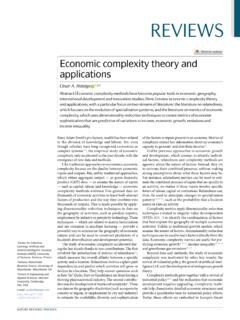Transcription of Liberation Psychology: Theory, Method, Practice, and ...
1 ViiCONTENTSC ontributors ixSeries Foreword xiFrederick T. L. LeongForeword: How APA Has Promoted Social Justice xvMelba J. T. VasquezAcknowledgments xixIntroduction 3 Edil Torres Rivera and Lillian Comas-D az I. Liberation PSYCHOLOGY theory 15 1. Liberation Psychology: Origins and Development 17 Mark Burton and Raquel Guzzo 2. Concepts of Liberation Psychology 41 Edil Torres Rivera 3. Liberation Psychology and Racism 53 Ra l Qui ones-Rosado II.
2 Liberation PSYCHOLOGY METHOD 69 4. From Freud to Fanon to Freire: Psychoanalysis as a Liberation Method 71 Daniel Gaztambide 5. Liberation Psychology of and for Transformative Justice: Centering Acompa amiento in Participatory Action Research 91 Jesica Siham Fern ndezCOPYRIGHT AMERICAN PSYCHOLOGICAL ASSOCIATION viii Contents 6. Feminist Participatory Action Research: Coconstructing Liberation Psychological Praxis Through Dialogic Relationality and Critical Reflexivity 111 M. Brinton Lykes and Gabriela T vara III. Liberation PSYCHOLOGY CLINICAL PRACTICE 131 7. Testimonios 13 3 Alejandro Cervantes 8. Urban Liberation : Postcolonial Intersectional Feminism and Developing a Socially Conscious Therapeutic Practice 149 Chakira M.
3 Haddock-Lazala 9. Liberation Psychotherapy 169 Lillian Comas-D az IV. Liberation PSYCHOLOGY AND SPECIAL POPULATIONS 187 10. Black Minds Matter: Applying Liberation Psychology to Black Americans 189 Thema Bryant-Davis and Shavonne J. Moore-Lobban 11. Liberation Psychology and LGBTQ+ Communities: Naming Colonization, Uplifting Resilience, and Reclaiming Ancient His-Stories, Her-Stories, and T-Stories 207 Anneliese A. Singh, Brean a Parker, Anushka R. Aqil, and Falon Thacker 12. Transnational Feminist Liberation Psychology: Decolonizing Border Crossings 225 Kathryn L. Norsworthy and Ouyporn Khuankaew V. Liberation PSYCHOLOGY SOCIAL ACTION 245 13. Liberation Psychology, Creativity, and Arts-Based Activism and Artivism: Culturally Meaningful Methods Connecting Personal Development and Social Change 247 Ester R.
4 Shapiro 14. Liberation , Inspiration, and Critical Consciousness: Preparing the Next Generation of Practitioners 265 Carrie L. Casta eda-Sound, Daryl M. Rowe, Nahaal Binazir, and Marlene L. Cabrera Conclusion: Liberation Psychology Crossing Borders Into New Frontiers 283 Lillian Comas-D az and Edil Torres RiveraGlossary 297 Index 301 About the Editors 313 COPYRIGHT AMERICAN PSYCHOLOGICAL ASSOCIATION 3No one is free when others are oppressed. AUTHOR UNKNOWNWe invite you to expand your perspective on oppression, power, and lib-eration. In this edited book, we discuss Liberation psychology, a disci-pline that encourages empowerment, healing, and transformation. Liberation psychology refers to the use of psychological approaches to understand and address oppression among individuals and groups (Mart n-Bar , 1994).
5 Liberation psychologists view oppression as the interaction of intrapsychic factors with systemic factors, such as sociopolitical injustice (Comas-D az, Hall, & Neville, 2019). They foster awareness of discrimination and inequality, for-tify individuals strengths, affirm cultural identities, and promote change to attenuate human suffering and improve people s lives (Mart n-Bar , 1994; Montero & Sonn, 2009). If you are new to Liberation psychology, you will find in this edited book ways to address oppression through psychological theory , method, practice, and activism. On the other hand, if you are already familiar with this approach, you will find new applications of Liberation psychology. For example, given that Liberation psychology has its beginnings in Latin America s community psychology, its uses in the therapeutic field are not well communicate with you, we use a testimonial voice (whether implicit or explicit) in several chapters, a Liberation psychology method that relates in a more personal and intimate manner (Brabeck, 2003; see Chapter 7, this IntroductionEdil Torres Rivera and Lillian Comas-D Psychology: theory , Method, Practice, and Social Justice, edited by L.)
6 Comas-D az and E. Torres RiveraCopyright 2020 by the American Psychological Association. All rights AMERICAN PSYCHOLOGICAL ASSOCIATION4 Torres Rivera and Comas-D azvolume). We believe that Liberation psychology is relevant to most people because the majority of us have areas of oppression and areas of privilege. Given that we are caught in a matrix of oppression, we can benefit from liber-ation approaches. For instance, the Brazilian Paulo Freire (1970, 2005), who developed the pedagogy of the oppressed, suggested that the oppressed carry an internalized oppressor, an aspect of the self that is also in need of Liberation . Freire (1970) indicated that oppressed people experience (a) powerlessness, (b) disunion, (c) prevention from realizing their full potential, (d) internaliza-tion of the oppressor s consciousness, (e) conditioning by dominant thinking and behavior, and (f) unawareness of being manipulated and exploited.
7 Con-versely, those with privilege (a) have power, (b) are unaware of their privilege, (c) feel unified, (d) believe that the status quo is the way things are, (e) use their power to preserve their position, and (f) exploit the powerless without acknowledging this behavior (Butts & Rich, 2015). Consistent with this argu-ment, Liberation practitioners work in a collaborative and participatory manner with oppressed people and populations. They place individuals in multiple con-texts, including cultural, historical, gender, sexual orientation, sociopolitical, geopolitical, and other intersecting factors. In this way, Liberation psychologists recognize the impact of the confluence of context, history, social location, and power powerlessness on health and psychology originated from several emancipatory movements in Latin America.
8 We find sources of Liberation in Freire s (1970) pedagogical process, an approach that promotes conscientizaci n (the Spanish word for crit-ical consciousness), dialogue, and collaboration between educator and student in the struggle against oppression. Freire (2005) coined the term concientizacao (the Portuguese word for critical consciousness) to educate individuals in understanding their world to develop an awareness of social and political contradictions and to take action against theology is another significant source of Liberation psychology. This is not surprising given that the architect of Liberation psychology, Ignacio Mart n-Bar , was both a priest and a community psychologist. In the Spanish tradition, we place a hyphen between Ignacio s last two names to separate his paternal surname (Mart n) from his maternal surname (Bar ).
9 Integrating Christian theology and socioeconomic analyses, Liberation theologians focus on the eman-cipation of marginalized and oppressed communities (Gutierrez, 1973). Indeed, Liberation theologians predicate a preferential approach for the poor and the oppressed. Similarly, Liberation psychologists aim to address the needs of those who suffer from historical, cultural, systemic, and sociopolitical believe that Liberation psychology can benefit you, in addition to the people with whom you work. Indeed, we developed this edited book as a resource for psychologists, researchers, educators, clinicians, counselors, trainees, and other mental health practitioners, as well as for social justice activists and other interested individuals.
10 This book is particularly intended to provide the theoretical framework that is missing in the social justice move-ment in psychology and therapeutic settings, as well as to infuse applications to mental health practitioners that go beyond advocacy (Torres Rivera, 2019). COPYRIGHT AMERICAN PSYCHOLOGICAL ASSOCIATIONI ntroduction 5In this fashion, we follow Liberation psychology s value of inclusivity. Because the field originated in Latin America, many liberatory conceptual terms are in Spanish and Portuguese. We recommend that you become familiar with these terms by using the glossary in this book. Likewise, we suggest that you con-sider the powerful influence of language, particularly when working with indi-viduals whose first language is not English.


